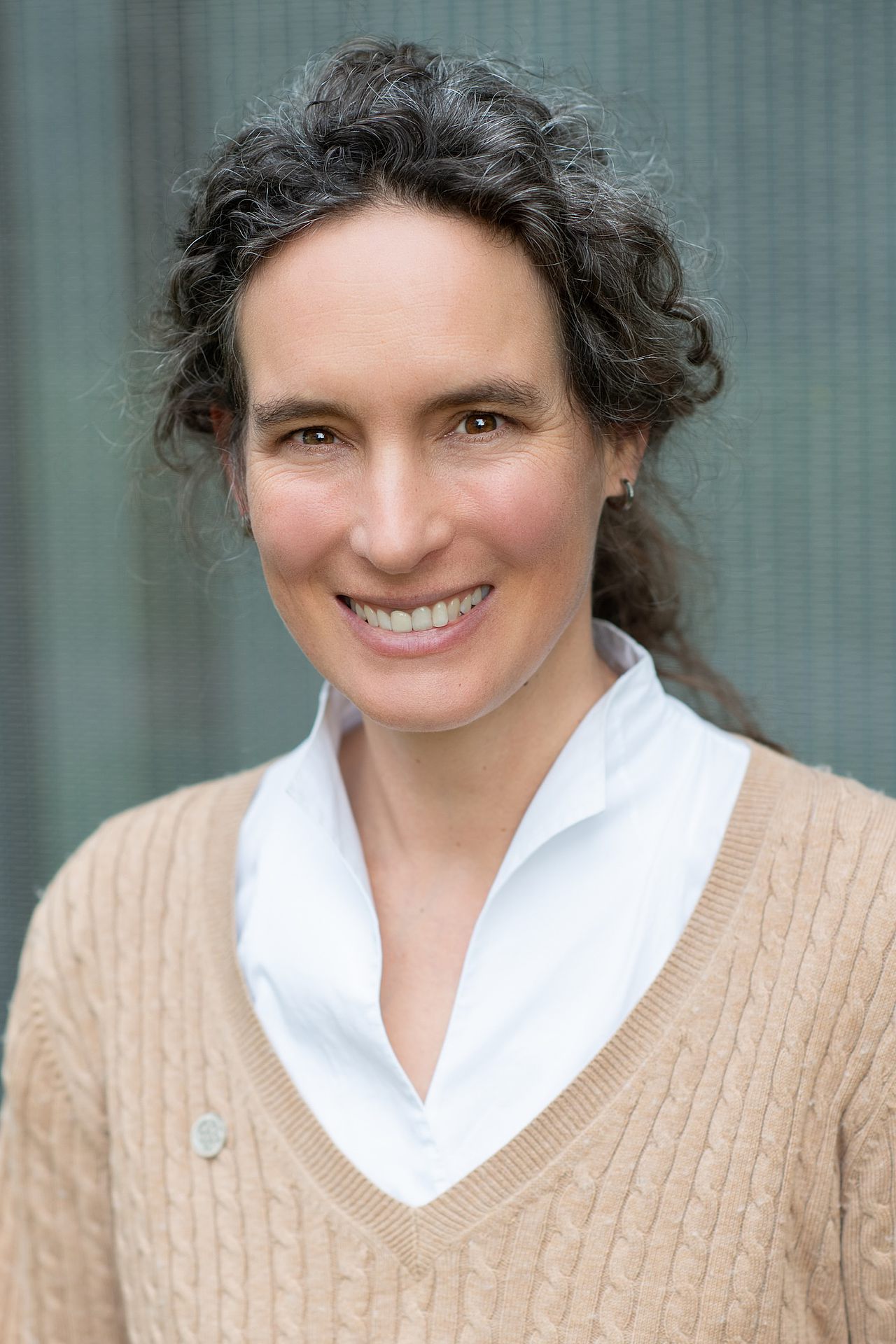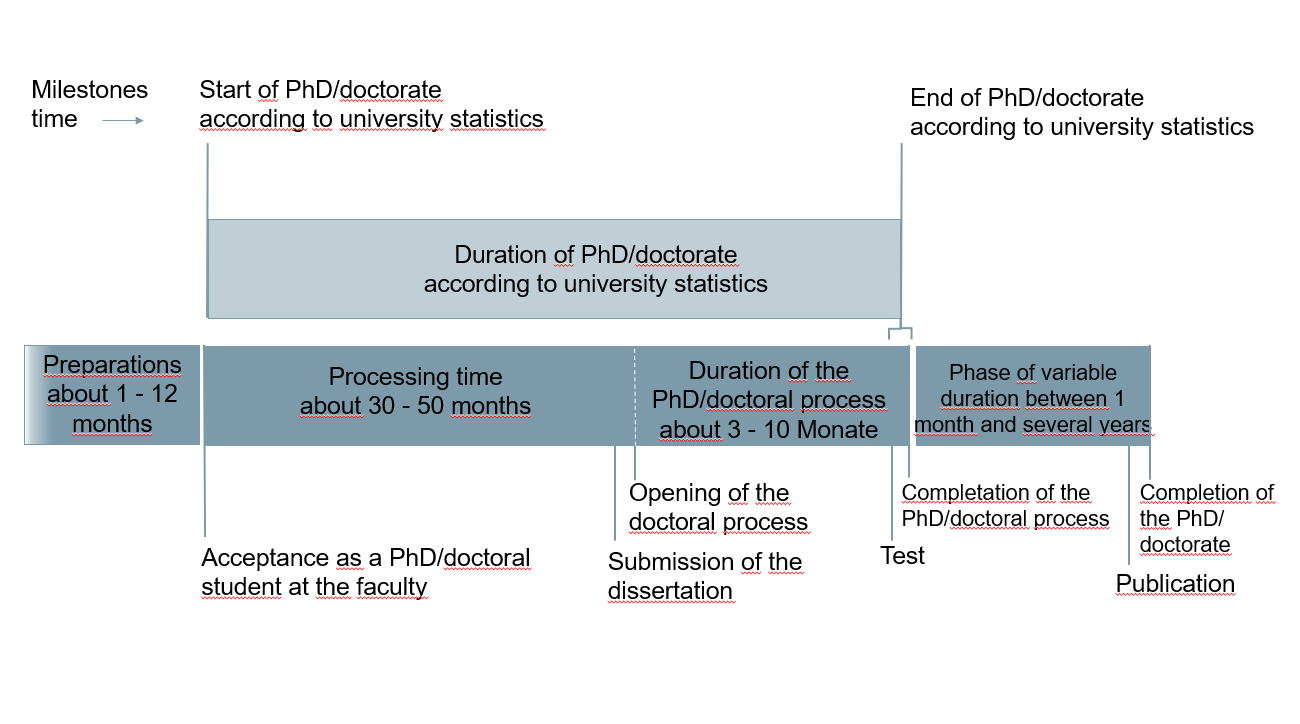In this section you will find comprehensive information, resources, and support options to effectively organize your doctoral studies and related transitions. Please note that these aspects vary depending on the subject area and do not encompass all elements of the PhD/doctoral phase.
Checklist for PhD/Doctoral Candidates
Clarify your research topic and its significance to your field and the scientific community. Define clear research objectives and find a suitable supervisor early to support your project.
Establish clear career goals and decide whether to pursue an academic or non-academic path. Build networks within your specialized community, connect with colleagues, and explore potential collaborations. Take advantage of additional training, courses, or workshops to gain skills relevant to both your PhD/doctorate and your professional future.
After completing the administrative preparations, start the research work. Clearly outline your research, establish milestones and timelines, and determine the methods. Conduct a thorough literature review to grasp the current state of knowledge and organize your sources systematically. Create a realistic timeline, monitor your progress regularly, and adjust it as necessary. Document your research findings carefully and maintain consistent communication with your supervisor to receive feedback.
Carefully structure your dissertation by creating a clear outline and providing detailed chapter overviews, and work on it consistently to facilitate the writing process. Prepare thoroughly for your dissertation defense, ensuring that all administrative requirements for completing your PhD/doctorate are met punctually.
Publish your research results in specialized journals and present them at conferences to gain feedback from experts and enhance the visibility of your work. Moreover, capitalize on opportunities to acquire teaching experience by accepting teaching responsibilitites and developing your didactic skills through feedback from students and instructors.
Sources:
Scholz, A-L., Ahn, J-Y., Müller, L. (2023). Ratgeber Promotion. Der Weg zum Doktortitel: Von der Themenfindung bis zur Verteidigung. Zeit Campus.
Universitätsverband zur Qualifizierung des wissenschaftlichen Nachwuchses in Deutschland e. V. (UniWiND) (2017). Verlaufsmodell einer Promotion in Deutschland. https://www.unikon.uniwind.org/promovierendenerfassung/verlaufsmodell-promotion
What advice do you have for junior researchers who are facing significant career decisions?
Get an Overview of a Possible Doctoral Program
Please note that this presentation provides a general overview and may not include specific details that are dependent on each department. The duration and intensity of your doctorate can varry depending on the department and may involve different milestones.
Information and Offers During Your Doctorate
► Parenting & Science: Discover family-friendly working and studying conditions.
► Family-Friendly University: Receive assistance with personal family-related matters.
► Equality: As a PhD/doctoral student, explore financial support options and seek personalized advice.
► International Office: Request assistance as an international PhD/doctoral candidate.
► Konfliktberatung: Contact the ombudspersons about any conflict situations related to your doctoral thesis.
► Doctoral Convention: Discuss with your fellow students about topics like your thesis, supervision, oder resolving conflicts. The Doctoral Convention advocates for your interests across various university committees.
► Psychosocial Counseling: Take advantage of the counseling services and courses offered at the psychosocial counseling center.
► Representative body for People with Disabilities: Contact us for advice, assistance, or support.
► Addiction Counseling: Contact the addiction prevention working group.
► Current Course Program: Explore a variety of training opportunities and courses for different interdisciplinary qualifications.
► Offers from the Department of University Didactics: Explore a wide range of topics related to university teaching.
► The principles of sound scientific practice: Discover the requirements for rigorous research here.
► Information about Funding Programs: Here you will find internal support programs.
Career Paths as a Junior Researcher
► External Advice an Training for Early Career Researchers
Centrum für Hochschulentwicklung CHE: The CHE Centrum für Hochschulentwicklung is dedicated to an efficient and equitable higher education system. A significant aspect of its work involves applied research projects in various fields of higher education and science. The CHE is notable for its capacity to integrate research expertise with targeted communication and create actionable implementation models.
Deutscher Hochschulverband DHV: The DHV provides comprehensive services and information to academics at German universities and similar institutions of higher education and supports young academics.
Zentrum für Wissenschaftsmanagement Speyer ZWM: The Zentrum für Wissenschaftsmanagement (ZWM) is an initiative of the German scientific community. It represents an association of major universities, non-university research institutions, scientific organizations, companies, and individuals who collectively bear responsibility for efficient and professional science management.
► Promoting Early Career Researchers
Qualitätszirkel Promotion QZP: An informal working group dedicated to facilitating exchanges between universities and their graduate centers, aiming to enhance doctoral education and support the career development of postdocs.
UniWiND: Deutscher Hochschulverband für Hochschulfortbildung (UniWiND/GUAT). Their goal is to uphold high standards in the training of doctoral candidates and early career researchers to advance their careers both within and outside of academia.
Successfully mastering the award of a doctoral degree: finding motivation, sticking with it and remaining resilient
In the following video, Ms Annika Schmidt shares valuable tips and insights on the topics of initial motivation, resilience, soft skills and the art of sticking with it, even when the going gets tough. Be inspired and learn strategies to overcome challenges during your award of a doctoral degree and consistently pursue your goal.
You can find out more about the speaker at:
https://www.ankommen-unterwegs.international






